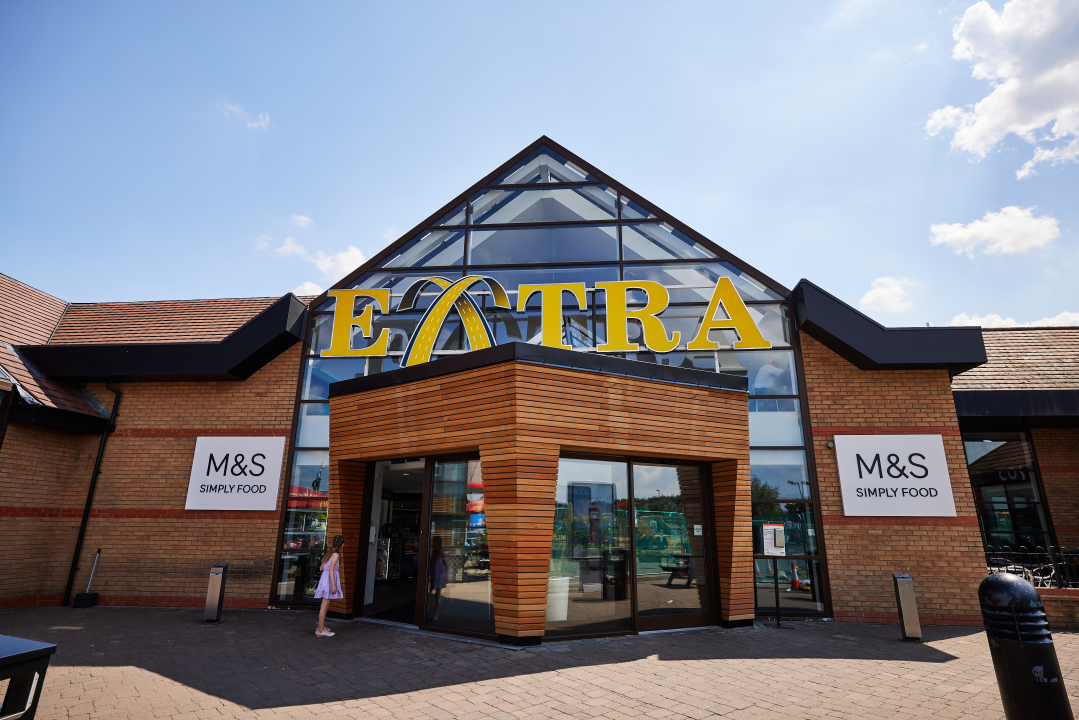
Josh Cousens
Een strategisch partnerschap: SNAP en Extra's aanpak van vrachtwagenparkeren
Gemaakt: 01-08-2024
•
Bijgewerkt: 13-08-2024
Directeur Ross Mendenhall legt uit hoe SNAP Extra Motorway Service Area (MSA) heeft geholpen om de omzetgroei in hun netwerk met 8% per jaar te verhogen sinds we in 2011 zijn gaan samenwerken.
"Een belangrijk voordeel voor ons is dat het SNAP-klantenbestand voortdurend wordt uitgebreid, waardoor we jaarlijks 30.000 extra potentiële klanten kunnen bereiken," zegt Ross Mendenhall, die SNAP gebruikt om Extra's truckparkingactiviteiten te maximaliseren.
Ross legt zijn rol bij Extra uit: "Ik houd toezicht op ons netwerk van acht MSA's in heel Engeland, ik zorg ervoor dat we de beste werkomgeving en processen hebben, zodat we maximale klanttevredenheid kunnen leveren, en ik werk samen met onze CEO om ervoor te zorgen dat we ons concentreren op onze groeiambities.
"Ik werk ook nauw samen met onze leveranciers en huurders om ervoor te zorgen dat we de best mogelijke ervaring bieden voor iedereen die onze MSA's bezoekt."
Extra snelweggebieden
Na de opening van de eerste vestiging in Cambridge in 2000 is Extra nu een van de grootste aanbieders van snelwegdiensten in het Verenigd Koninkrijk. In het meest recente Transport Focus Motorway Service Users onderzoek werd Extra uitgeroepen tot de nummer één operator voor klanttevredenheid in het Verenigd Koninkrijk.
Ross zegt: "Centraal in onze bedrijfsfilosofie staat ons streven om 'een stapje extra te doen' om al onze bezoekers een geweldige ervaring te bieden.
"We zijn er vooral trots op dat we een groot aanbod hebben van enkele van de favoriete Britse merken op het gebied van eten en drinken, schilderachtige buitenruimtes compleet met hondenuitlaatplaatsen en kinderspeelplaatsen, evenals veilige, schone en hoogwaardige faciliteiten waar iedereen van kan genieten."
In 2023 waren er 260.066 SNAP-parkeerbeurten in Extra Motorway Service Areas.
(https://prodsnapstorage.blob.core.windows.net/public-news/fccf7f79-1b99-46d8-b30b-f3bbb12312c7-aerial%20shot%20of%20extra%20services.jpg)
SNAP invoeren
Ross begon in 2011 met SNAP samen te werken en legt uit hoe de samenwerking Extra heeft geholpen om de parkeerservice voor vrachtwagens te laten groeien. "SNAP helpt ons bij het communiceren van onze belangrijkste diensten aan vrachtwagenchauffeurs en vloten, door zichtbaarheid te geven aan onze parkeer-, brandstof- en wasmogelijkheden.
"We zijn vastbesloten om de tevredenheid van de vrachtwagenchauffeurs die bij ons stoppen te verhogen en door deel uit te maken van het SNAP-netwerk kunnen we precies dit doen. Via de app kunnen we onze partnerschappen en organische verkoop laten groeien door klanten een efficiënt hulpmiddel te geven om meer te weten te komen over onze faciliteiten, inclusief hoe we hun verblijf plezierig, ontspannend en veilig kunnen maken."
Hoe was het installatieproces?
We wilden weten of er complicaties waren in het beginstadium van de relatie.
Ross zegt: "Het was heel eenvoudig. Het SNAP-team stond klaar om al onze vragen te beantwoorden en zelfs nadat de installatie was voltooid, luisterden ze graag naar onze feedback over hoe het systeem verder kon worden verbeterd om beter aan onze behoeften te voldoen."
Inkomstengroei
We vroegen Ross of SNAP Extra heeft geholpen om hun inkomsten te verhogen:
"Onze samenwerking met SNAP heeft ons geholpen onze omzetgroei gestaag te verhogen, die op jaarbasis met 8% is gestegen, terwijl de transactiegroei met 2% is toegenomen.
"Onze diensten in Cambridge en Peterborough hebben met 11% en 12% de grootste verbetering op jaarbasis laten zien. Bovendien hebben onze diensten in Peterborough, Leeds en Cambridge nu allemaal een bezettingsgraad van 100%+."
(https://prodsnapstorage.blob.core.windows.net/public-news/bdebd7cd-49c7-4f46-8ec6-7ca389c9b074-Extra%20entrance.jpg)
SNAP Toegang en beveiliging
Na enkele jaren succesvol te hebben samengewerkt, vroeg Extra ons in 2018 of we konden helpen hun beveiligingsfaciliteiten te verbeteren.
"We hebben ons partnerschap met SNAP in de loop der jaren verder uitgebouwd en geïnvesteerd in CCTV- en ANPR-technologie om maximale veiligheid te garanderen.
"De installatie van beveiligingstechnologieën op al onze acht locaties heeft ons geholpen om onze inkomsten te beschermen en ervoor te zorgen dat elk voertuig voor de juiste verblijfsduur betaalt.
"De impact van de samenwerking met SNAP Access & Security was vrijwel onmiddellijk - met een geregistreerde stijging van de inkomsten uit parkeren van ongeveer 20% sinds de ingebruikname.
"En omdat veiligheid een van de prioriteiten is voor vrachtwagenchauffeurs die voor langere tijd moeten stoppen, zijn we blij dat we hun verblijf aangenamer kunnen maken door hen te verzekeren dat we uitgebreide maatregelen hebben genomen om het risico op diefstal te minimaliseren.
"Toegang tot de business intelligence-dashboards van SNAP betekent ook dat we gegevens in realtime kunnen controleren, waardoor we de best mogelijke gebruikerservaring kunnen bieden", zegt Ross.
Het beste stukje
Om het interview af te sluiten, wilden we Ross vragen wat hij het leukste vond aan het werken met SNAP:
"Een belangrijk succes voor ons is de impact op de efficiëntie van het personeel. De invoering van het ANPR-systeem in combinatie met de betaalterminals biedt chauffeurs een zelfbedieningsoptie, wat betekent dat het personeel zich in plaats daarvan kan richten op andere belangrijke taken zoals schoonmaken, onderhoud en klantenservice.
"De flexibiliteit die de betaalterminals bieden is ook een grote aantrekkingskracht: chauffeurs kunnen de betaalterminals in 15 talen gebruiken, wat de klantervaring verbetert en problemen met taalbarrières vermindert."
Ga vandaag nog naar de SNAP Map voor meer informatie over de extra servicepartners in het SNAP-netwerk. Als u parkeerfaciliteiten voor vrachtwagens aanbiedt en lid wilt worden van het SNAP-netwerk, vindt u hier meer informatie.


